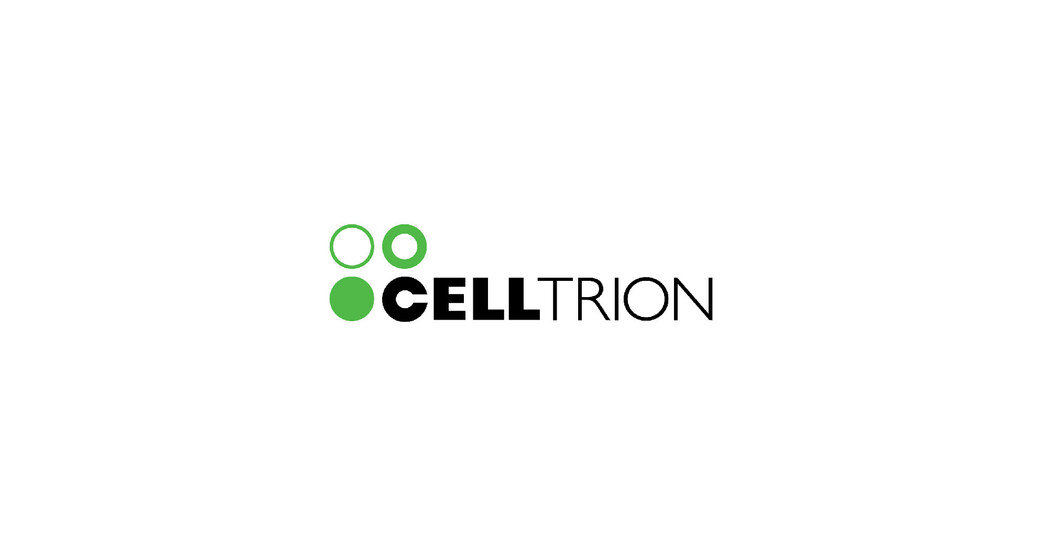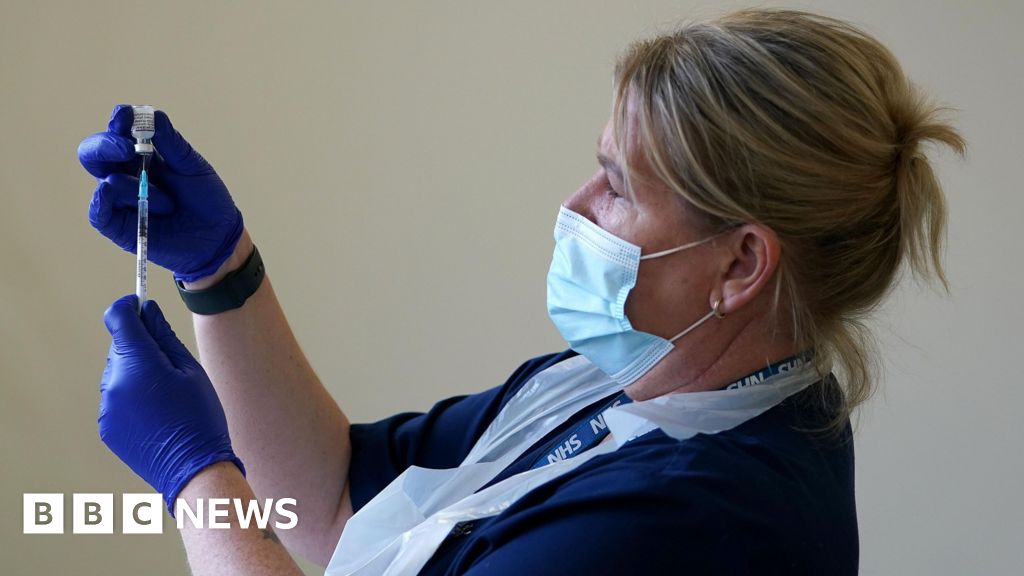- YUFLYMA® (adalimumab-aaty), and its unbranded version, are now approved for two additional pediatric indications – adolescent hidradenitis suppurativa (HS) and pediatric uveitis (UV), in the U.S. [1] , [2]
- Pediatric UV is a rare eye inflammation in children, representing 5–10% of all uveitis cases in the U.S., while HS affects approximately 1–4% of the U.S. population [3] , [4]
- Celltrion strengthens and expands its biosimilars immunology portfolio in the U.S., advancing affordable treatment options for patients living with chronic immune-mediated diseases
INCHEON, South Korea, Oct. 17, 2025 /PRNewswire/ — Celltrion, Inc. today announced that the U.S. Food and Drug Administration (FDA) has approved expanded indications for YUFLYMA® (adalimumab-aaty) and its unbranded version, to include the treatment of hidradenitis suppurativa (HS) in adolescent patients aged 12 years and older, and uveitis (UV) in pediatric patients aged 2 years and older.[1],[2]
The FDA previously approved YUFLYMA as a biosimilar to Humira® for a variety of indications, including rheumatoid arthritis (RA), psoriatic arthritis (PsA), juvenile idiopathic arthritis (JIA), ankylosing spondylitis (AS), Crohn’s disease (CD), ulcerative colitis (UC), and plaque psoriasis (Ps). HS and UV were previously approved in adult patients, and the latest approval expands these two indications to include pediatric and adolescent populations.[1]
HS, which affects approximately 1%-4% of people in the U.S., is a chronic, inflammatory, recurrent skin condition characterized by painful nodules, abscesses, comedones, fistulas, sinus tracts, and scarring in intertriginous areas. Adolescent HS shares similar clinical features and often disrupts school and daily life. Pediatric UV, a potentially sight-threatening eye condition that accounts for 5-10% of all uveitis cases, is frequently asymptomatic in children and can become chronic or may have significant morbidities in pediatric patients, such as cataract, glaucoma, and amblyopia.[5],[6]
“Adolescent HS and pediatric UV are chronic inflammatory conditions that can have serious sequelae and place a significant burden on patients, their families, and caregivers. It impacts patients physically and also emotionally and socially,” said Dr. Juby Jacob-Nara, Senior Vice President and Chief Medical Officer at Celltrion USA. “With this label expansion, YUFLYMA is now able to provide treatment options for more patient populations, further supporting broader access for both patients and physicians.”
YUFLYLMA was first introduced in the U.S. market in July 2023 and is currently available as 20mg, 40mg, and 80mg solution for injection in prefilled syringes and as 40mg and 80mg solution for injection in autoinjectors. Celltrion offers adalimumab-aaty in both branded and unbranded versions, with two pricing options to meet differing patient needs and improve patient affordability.
“The expansion of pediatric indications for YUFLYMA highlights our commitment to addressing unmet needs in both adult and pediatric immune-mediated diseases,” said Thomas Nusbickel, Chief Commercial Officer at Celltrion USA. “The approval of pediatric indications for YUFLYMA and unbranded adalimumab-aaty strengthens our growing immunology portfolio and supports broader patient access to high-quality, affordable treatments.”
###
Notes to Editors:
About YUFLYMA ® (CT-P17, biosimilar adalimumab-aaty) [1]
YUFLYMA® is a high-concentration, low-volume and citrate-free adalimumab biosimilar to receive European Commission approval. YUFLYMA is FDA approved for the treatment of patients with rheumatoid arthritis, juvenile idiopathic arthritis, psoriatic arthritis, ankylosing spondylitis, Crohn’s disease, ulcerative colitis, plaque psoriasis, hidradenitis suppurativa and uveitis. YUFLYMA has been designated by the FDA as an interchangeable biosimilar in a prefilled syringe and autoinjector. YUFLYMA is a recombinant fully human anti–tumor necrosis factor α (anti-TNFα) monoclonal antibody. YUFLYMA is available in prefilled syringe as 20mg/0.2mL, 40mg/0.4mL and 80mg/0.8mL and autoinjector as 40mg/0.4mL and 80mg/0.8mL. Additionally, YUFLYMA features one of the longest shelf lives in its class, maintaining stability at room temperature (77 °F, 25 °C) for up to 31 days.
IMPORTANT SAFETY INFORMATION [1]
This important safety information also applies to YUFLYMA ® (adalimumab-aaty).
SERIOUS INFECTIONS
Patients treated with adalimumab-aaty are at increased risk for developing serious infections that may lead to hospitalization or death. Most patients who developed these infections were taking concomitant immunosuppressants such as methotrexate or corticosteroids.
Discontinue adalimumab-aaty if a patient develops a serious infection or sepsis.
Reported infections include:
- Active tuberculosis (TB), including reactivation of latent TB. Patients with TB have frequently presented with disseminated or extrapulmonary disease. Test patients for latent TB before adalimumab-aaty use and during therapy. Initiate treatment for latent TB prior to adalimumab-aaty use.
- Invasive fungal infections, including histoplasmosis, coccidioidomycosis, candidiasis, aspergillosis, blastomycosis, and pneumocystosis. Patients with histoplasmosis or other invasive fungal infections may present with disseminated, rather than localized, disease. Antigen and antibody testing for histoplasmosis may be negative in some patients with active infection. Consider empiric antifungal therapy in patients at risk for invasive fungal infections who develop severe systemic illness.
- Bacterial, viral, and other infections due to opportunistic pathogens, including Legionella and Listeria.
Carefully consider the risks and benefits of treatment with adalimumab-aaty prior to initiating therapy in patients with chronic or recurrent infection.
Monitor patients closely for the development of signs and symptoms of infection during and after treatment with adalimumab-aaty, including the possible development of TB in patients who tested negative for latent TB infection prior to initiating therapy.
- Treatment with adalimumab-aaty should not be initiated in patients with an active infection, including localized infections.
- Patients over 65 years of age, patients with co-morbid conditions and/or patients taking concomitant immunosuppressants (such as corticosteroids or methotrexate), may be at greater risk of infection. Discontinue adalimumab-aaty if a patient develops a serious infection or sepsis. For a patient who develops a new infection during treatment with adalimumab-aaty, closely monitor them, perform a prompt and complete diagnostic workup appropriate for an immunocompromised patient, and initiate appropriate antimicrobial therapy.
- Drug interactions with biologic products: In clinical studies in patients with RA, an increased risk of serious infections has been observed with the combination of TNF blockers with anakinra or abatacept, with no added benefit; therefore, use of adalimumab-aaty with abatacept or anakinra is not recommended in patients with RA. A higher rate of serious infections has also been observed in patients with RA treated with rituximab who received subsequent treatment with a TNF blocker. There is insufficient information regarding the concomitant use of adalimumab-aaty and other biologic products for the treatment of RA, PsA, AS, CD, UC, PS, and HS. Concomitant administration of adalimumab-aaty with other biologic disease-modifying antirheumatic drugs (DMARDs) (e.g., anakinra and abatacept) or other TNF blockers is not recommended based upon the possible increased risk for infections and other potential pharmacological interactions. A higher rate of serious infections has been observed in RA patients treated with rituximab who received subsequent treatment with a TNF blocker.
MALIGNANCY
Lymphoma and other malignancies, some fatal, have been reported in children and adolescent patients treated with TNF blockers, including adalimumab products. Postmarketing cases of hepatosplenic T-cell lymphoma (HSTCL), a rare type of T-cell lymphoma, have been reported in patients treated with TNF blockers, including adalimumab products. These cases have had a very aggressive disease course and have been fatal. The majority of reported TNF blocker cases have occurred in patients with Crohn’s disease or ulcerative colitis and the majority were in adolescent and young adult males. Almost all of these patients had received treatment with azathioprine or 6-mercaptopurine concomitantly with a TNF blocker at or prior to diagnosis. It is uncertain whether the occurrence of HSTCL is related to the use of a TNF blocker or a TNF blocker in combination with these other immunosuppressants.
- Consider the risks and benefits of TNF blocker treatment including adalimumab-aaty prior to initiating therapy in patients with a known malignancy other than a successfully treated non-melanoma skin cancer (NMSC), or when considering continuing a TNF blocker in patients who develop a malignancy.
- In controlled portions of clinical trials of some adalimumab products, more cases of malignancies have been observed compared to control-treated adult patients.
- NMSC was reported during clinical trials for patients treated with adalimumab products. During the controlled portions of 39 global adalimumab clinical trials in adult patients with RA, PsA, AS, CD, UC, PS, HS and UV, the rate (95% confidence interval) of NMSC was 0.8 (0.52, 1.09) per 100 patient-years among adalimumab-treated patients and 0.2 (0.10, 0.59) per 100 patient-years among control-treated patients. Examine all patients, particularly those with a medical history of prior prolonged immunosuppressant therapy or psoriasis patients with a history of psoralen + ultraviolet light A (PUVA) treatment, for the presence of NMSC prior to and during treatment with adalimumab-aaty.
- In clinical trials of some adalimumab products, there was an approximately threefold higher rate of lymphoma than expected in the general U.S. population. Patients with RA and other chronic inflammatory diseases, particularly those with highly active disease and/or chronic exposure to immunosuppressant therapies, may be at a higher risk (up to severalfold) than the general population for the development of lymphoma, even in the absence of TNF blockers.
- Postmarketing cases of acute and chronic leukemia were reported with the use of a TNF blocker in RA and other indications. Approximately half of the postmarketing cases of malignancies in children, adolescents, and young adults receiving adalimumab were lymphomas; other cases represented a variety of different malignancies and included rare malignancies usually associated with immunosuppression and malignancies that are not usually observed in children and adolescents.
HYPERSENSITIVITY
- Anaphylaxis and angioneurotic edema have been reported following administration of adalimumab products. If an anaphylactic or other serious allergic reaction occurs, immediately discontinue administration of adalimumab-aaty and institute appropriate therapy.
HEPATITIS B VIRUS REACTIVATION
- Use of TNF blockers, including adalimumab-aaty, may increase the risk of reactivation of hepatitis B virus (HBV) in patients who are chronic carriers. In some instances, HBV reactivation occurring in conjunction with TNF blocker therapy has been fatal.
- Evaluate patients at risk for HBV infection for prior evidence of HBV infection before initiating TNF blocker therapy.
- Exercise caution in prescribing TNF blockers for patients identified as carriers of HBV and closely monitor such patients for clinical and laboratory signs of active HBV infection throughout therapy and for several months following termination of therapy.
- In patients who develop HBV reactivation, stop adalimumab-aaty and initiate effective antiviral therapy with appropriate supportive treatment. The safety of resuming TNF blocker therapy after HBV reactivation is controlled is not known. Therefore, exercise caution when considering resumption of adalimumab-aaty therapy in this situation and monitor patients closely.
NEUROLOGIC REACTIONS
- Use of TNF blocking agents, including adalimumab products, has been associated with rare cases of new onset or exacerbation of clinical symptoms and/or radiographic evidence of central nervous system demyelinating disease, including multiple sclerosis (MS) and optic neuritis, and peripheral demyelinating disease, including Guillain-Barré syndrome.
- Exercise caution in considering the use of adalimumab-aaty in patients with preexisting or recent-onset central or peripheral nervous system demyelinating disorders; discontinuation of adalimumab-aaty should be considered if any of these disorders develop.
- There is a known association between intermediate uveitis and central demyelinating disorders.
HEMATOLOGIC REACTIONS
- Rare reports of pancytopenia including aplastic anemia have been reported with TNF blocking agents.
- Adverse reactions of the hematologic system, including medically significant cytopenia, have been infrequently reported with adalimumab products.
- Consider discontinuation of adalimumab-aaty therapy in patients with confirmed significant hematologic abnormalities.
HEART FAILURE
- Cases of worsening congestive heart failure (CHF) and new-onset CHF have been reported with TNF blockers. Cases of worsening CHF have also been observed with adalimumab products.
- Exercise caution when using adalimumab-aaty in patients who have heart failure and monitor them carefully.
AUTOIMMUNITY
- Treatment with adalimumab products may result in the formation of autoantibodies and, rarely, in the development of a lupus-like syndrome. If a patient develops symptoms suggestive of a lupus-like syndrome following treatment with adalimumab-aaty, discontinue treatment.
IMMUNIZATIONS
- Patients on adalimumab-aaty may receive concurrent vaccinations, except for live vaccines.
- It is recommended that pediatric patients, if possible, be brought up to date with all immunizations in agreement with current immunization guidelines prior to initiating adalimumab-aaty therapy.
- No data are available on the secondary transmission of infection by live vaccines in patients receiving adalimumab products.
- The safety of administering live or live-attenuated vaccines in infants exposed to adalimumab in utero is unknown. Risks and benefits should be considered prior to vaccinating (live or live-attenuated) exposed infants.
ADVERSE REACTIONS
- The most common adverse reactions in adalimumab clinical trials (>10%) were infections (e.g., upper respiratory, sinusitis), injection site reactions, headache, and rash.
INDICATIONS
Adalimumab-aaty is a tumor necrosis factor (TNF) blocker indicated for:
- Rheumatoid Arthritis (RA): reducing signs and symptoms, inducing major clinical response, inhibiting the progression of structural damage, and improving physical function in adult patients with moderately to severely active RA
- Juvenile Idiopathic Arthritis (JIA): reducing signs and symptoms of moderately to severely active polyarticular JIA in patients 2 years of age and older
- Psoriatic Arthritis (PsA): reducing signs and symptoms, inhibiting the progression of structural damage, and improving physical function in adult patients with active PsA
- Ankylosing Spondylitis (AS): reducing signs and symptoms in adult patients with active AS
- Crohn’s Disease (CD): treatment of moderately to severely active Crohn’s disease in adults and pediatric patients 6 years of age and older
- Ulcerative Colitis (UC): treatment of moderately to severely active ulcerative colitis in adults Limitations of Use: Effectiveness has not been established in patients who have lost response to or were intolerant to TNF blockers
- Plaque Psoriasis (Ps): treatment of adult patients with moderate to severe chronic plaque psoriasis who are candidates for systemic therapy or phototherapy, and when other systemic therapies are medically less appropriate
- Hidradenitis Suppurativa (HS): treatment of moderate to severe hidradenitis suppurativa in patients 12 years of age and older
- Uveitis (UV): treatment of non-infectious intermediate, posterior, and panuveitis in adult and pediatric patients 2 years of age and older
For Yuflyma (adalimumab-aaty): Please click for Full U.S. Prescribing Information.
For adalimumab-aaty: Please see Full U.S. Prescribing Information.
Globally, prescribing information varies; refer to the individual country product label for complete information.
About Celltrion, Inc.
Celltrion is a leading biopharmaceutical company that specializes in researching, developing, manufacturing, marketing and sales of innovative therapeutics that improve people’s lives worldwide. Celltrion is a pioneer in the biosimilar space, having launched the world’s first monoclonal antibody biosimilar. Our global pharmaceutical portfolio addresses a range of therapeutic areas including immunology, oncology, hematology, ophthalmology and endocrinology. Beyond biosimilar products, we are committed to advancing our pipeline with novel drugs to push the boundaries of scientific innovation and deliver quality medicines. For more information, please visit our website www.celltrion.com/en-us and stay updated with our latest news and events on our social media – LinkedIn, Instagram, X, and Facebook.
About Celltrion USA
Celltrion USA is Celltrion’s U.S. subsidiary established in 2018. Headquartered in New Jersey, Celltrion USA is committed to expanding access to innovative biologics to improve care for U.S. patients. Celltrion’s FDA-approved biosimilar products in immunology, oncology, hematology, endocrinology and ophthalmology include: INFLECTRA® (infliximab-dyyb), TRUXIMA® (rituximab-abbs), HERZUMA® (trastuzumab-pkrb), VEGZELMA® (bevacizumab-adcd), YUFLYMA®(adalimumab-aaty), AVTOZMA® (tocilizumab-anho), STEQEYMA® (ustekinumab-stba) STOBOCLO® (denosumab-bmwo), OSENVELT® (denosumab-bmwo), OMLYCLO® (omalizumab-igec), and EYDENZELT® (aflibercept-boav), as well as the novel biologic ZYMFENTRA® (infliximab-dyyb). Celltrion USA will continue to leverage Celltrion’s unique heritage in biotechnology, supply chain excellence and best-in-class sales capabilities to improve access to high-quality biopharmaceuticals for U.S. patients. For more information, please visit www.celltrionusa.com and stay updated with our latest news and events on our social media – LinkedIn.
FORWARD-LOOKING STATEMENT
Certain information set forth in this press release contains statements related to our future business and financial performance and future events or developments involving Celltrion Inc. and its subsidiaries that may constitute forward-looking statements, under pertinent securities laws. This press release contains forward looking statements. These statements may be also identified by words such as “prepares”, “hopes to”, “upcoming”, “plans to”, “aims to”, “to be launched”, “is preparing”, “once gained”, “could”, “with the aim of”, “may”, “once identified”, “will”, “working towards”, “is due”, “become available”, “has potential to”, “anticipates”, the negative of these words or such other variations thereon or comparable terminology.
In addition, our representatives may make oral forward-looking statements. Such statements are based on the current expectations and certain assumptions of Celltrion Inc. and its subsidiaries’ management, of which many are beyond its control.
Forward-looking statements are provided to allow potential investors the opportunity to understand management’s beliefs and opinions in respect of the future so that they may use such beliefs and opinions as one factor in evaluating an investment. These statements are not guarantees of future performance and undue reliance should not be placed on them.
Such forward-looking statements necessarily involve known and unknown risks and uncertainties associated with the company’s business, including the risk factors disclosed in its Annual Report and/or Quarterly Reports, which may cause actual performance and financial results in future periods to differ materially from any projections of future performance or results expressed or implied by such statements.
Celltrion Inc. and its subsidiaries undertake no obligation to update forward-looking statements if circumstances or management’s estimates or opinions should change except as required by applicable securities laws.
Trademarks
Humira is a registered trademark of AbbVie.
YUFLYMA® is a registered trademark of Celltrion, Inc., used under license.
References
|
[1] Yuflyma U.S. prescribing information (2025) |
|
[2] Adalimumab-aaty U.S. prescribing information (2025) |
|
[3] Tuğal-Tutkun İ. An Overview of Pediatric Uveitis. Turk Arch Pediatr. 2023 Jul;58(4):363-370. doi:10.5152/TurkArchPediatr.2023.23086. PMID: 37357450; PMCID: PMC10441137. |
|
[4] U.S. Food & Drug Administration. Hidradenitis Suppurativa. Available at: https://www.fda.gov/consumers/health-education-resources/hidradenitis-suppurativa |
|
[5] Nives Pustisek et al., Hidradenitis suppurativa in children and adolescents, Clinics in Dermatology, Volume 43, Issue 4, 2025, Pages 455-461, ISSN 0738-081X, https://doi.org/10.1016/j.clindermatol.2025.05.005. Available at: |
|
https://www.sciencedirect.com/science/article/pii/S0738081X25001476 |
|
[6] Arash Maleki et al., Pediatric uveitis: A comprehensive review, Survey of Ophthalmology, Volume 67, Issue 2, 2022, Pages 510-529, ISSN 0039-6257, https://doi.org/10.1016/j.survophthal.2021.06.006. Available at: https://www.sciencedirect.com/science/article/pii/S0039625721001430 |
| |
For further information please contact:
Katie Gallagher
[email protected]
+1 617-657-1324
SOURCE Celltrion USA













![Getty Images A text message being sent on a phone, reading 'I love [heart emoji] you. can you send me some money [heart emoji]'.](https://afnnews.qaasid.com/wp-content/uploads/2025/10/691d6cf0-aa7f-11f0-aa13-0b0479f6f42a.png.webp.webp)
